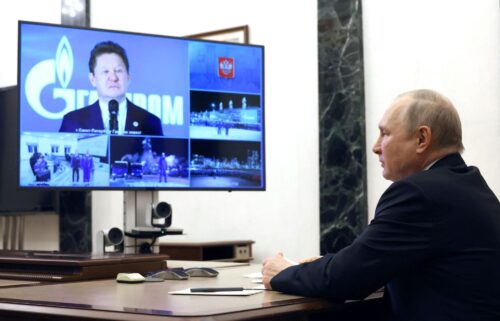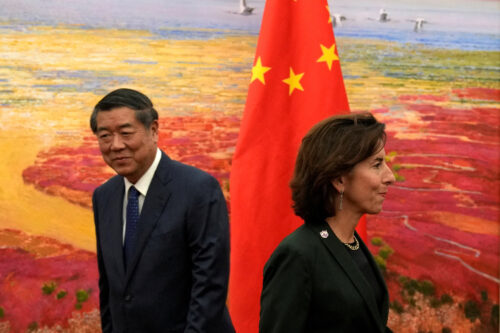Trade war: The clock is ticking


“Tariffs on $34 billion of Chinese goods are scheduled to take effect at 12:01 a.m. in Washington, the U.S. Trade Representative confirmed in an email,” reports Bloomberg. China is expected to retaliate immediately, although the Wall Street Journal says (paywall) Beijing has retreated from an earlier plan to put its tariffs into effect 12 hours before America’s hit. Two commentators I respect have this to say today:
Economist Andy Rothman on Sinology:
A key conclusion is that if either side chooses war, the impact on the Chinese economy and on the majority of listed Chinese companies will be quite modest, because it is not an export-driven economy.
China-watcher Bill Bishop in Sinocism (paywall):
I worry that Trump has underestimated Beijing’s resolve, and that in fact believed that his “friendship” with Xi would keep China from retaliating, and that some of Trump’s advisors have been telling him that the Chinese will have to cave quickly because otherwise their economy will collapse in the face of US tariffs. I would place those things into the category of “dangerous, wishful thinking.”
There’s plenty more commentary out there, but below I’ve selected only stories that contain news rather than punditry:
COMPANIES IN THE CROSSHAIRS
Between tariffs and growing national security worries in the United States, the tech and auto industries of both sides of the Pacific are facing an uncertain near-term future.
- The planned purchase by T-Mobile US of Sprint is under threat as U.S. lawmakers plan to pressure the Trump administration to closely scrutinize the deal, “arguing the acquisition poses a threat to American security because the owner of Sprint has ties to Chinese telecommunications company Huawei,” according Bloomberg (paywall).
- Micron, the American semiconductor group, confirmed that a Chinese court “has granted a preliminary junction that bans its Chinese subsidiaries from manufacturing and selling some of its products,” reports CNBC. Taiwan’s United Microelectronics Corporation (UMC) and its Fujian-based partner Jinhua “sought the sales ban, alleging that Micron violated its patent rights in China. UMC and Micron have gone back and forth in the courts, alleging various intellectual property violations.” The dispute predates the trade war, but Micron is likely to face additional hostility in the current climate, and Bloomberg says (paywall) that “the tussle appears to be less about the law and mostly about the Chinese government’s efforts to develop a homegrown computer-chip industry at any cost.”
- Japan’s biggest auto-parts supplier, Denso, with a market value of $37 billion, sees the threat of a trade war as a “grave concern,” according to Bloomberg (paywall). Denso is currently readying “an expansion in China, along with a war chest worth at least $9 billion for investments aimed at broadening its business beyond top customer Toyota.”
- ZTE has some respite: “The Trump administration has temporarily lifted part of a ban it had placed on ZTE Corp, allowing the Chinese telecommunications giant resume some of its business activities while the Congress continues to weigh penalties on the company,” says the South China Morning Post.
RIPPLE EFFECTS
Countries and entire industries are worrying about how their world will change, starting tonight.
- “China’s ambitious push to use biofuel in cars nationwide by 2020 is in doubt amid concerns about supplies of raw material such as corn, complicated by an escalating trade dispute with Washington,” reports Reuters.
- U.S. companies in China think the government is already messing with them, says the Washington Post, noting stepped-up inspections and problems at customs reported recently by American firms.
- South Korea “will be one of the hardest hit economies in the world if an all-out trade war breaks out,” said a senior South Korea trade official, according to the South China Morning Post.
- “Taiwanese businesses are weighing up whether to move manufacturing operations from the Chinese mainland if the US trade dispute worsens,” says the South China Morning Post. “Such a move would be hugely expensive, but the island’s companies are likely to be one of the main losers in the event of a full-blown trade war between the world’s two largest economies.”
ECONOMIC SIGNALS FROM CHINA
Here are some tea leaves to read:
- China’s manufacturing activity expanded slightly in June, “with rising domestic demand balanced by a deterioration in new orders from overseas amid growing trade tensions with the U.S., a Caixin survey showed.
- But China is heading for a record number of corporate bond defaults because of a weakening currency and a slowing economy, according to Bloomberg (video).
- Central bankers are hinting that China will ease its war on debt, “seeking to strike a balance between deleveraging and protecting a slowing economy that is showing growing signs of financial distress,” reports Caixin (paywall).
- “The Chinese yuan surged against the dollar on Wednesday,” after the head of the People’s Bank of China (PBoC) vowed to keep the exchange rate stable, reports the Wall Street Journal (paywall).
- The yuan’s rebound failed to soothe investors’ nerves as Chinese stocks resumed their downward trajectory, according to Bloomberg (paywall).
- Global stock markets remain skittish: “World shares were mostly lower on Wednesday as European shares tracked losses in Asia and on Wall Street,” says the Washington Post (paywall).
FINANCIAL SECTOR OPENING?
U.S.-based Bridgewater Associates, “the world’s largest hedge-fund firm, has won approval to sell investment products to institutional and high-net-worth investors in China,” reports the Wall Street Journal (paywall).
- The Shanghai-registered unit of Bridgewater “obtained a license on June 29 to be a private fund manager,” according to the Journal.
- Does this mean that China will follow through on promises made last November about opening up the financial sector to much greater foreign involvement, despite the impending trade war?
MADE IN CHINA 2025
Made in China 2025 is the Chinese government policy that seeks to make the nation dominant in a range of high-tech sectors, and it is causing a great deal of unease in Washington, D.C., right now.
- The China Project’s most recent explainer is all about Made in China 2025: It’s a 10-minute read that will give you everything you need to know about the policy as well as a bunch of links for further reading.
- “China will succeed in building a powerful technology industry that will rival the United States, even if President Trump starts a trade war to stop it,” argues Li Yuan in this New York Times article (paywall), because companies and local governments are as committed to the plan as the central planners.
Previously in The China Project’s trade war coverage:






